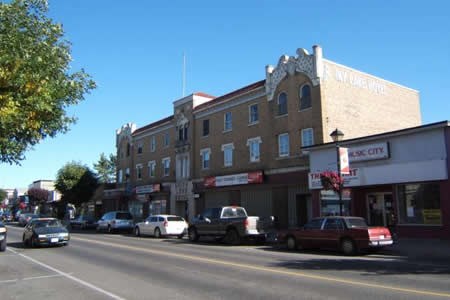For one-industry towns like Fort Frances, dependent on the region's shaky forest products sector for its economic livelihood, diversification is always the watchword.
Local delegates from the town and the Rainy River District have been regulars at the Northern Networks Conference since the mid-1990's, having been anchored in Duluth, Minn. for the last five years.
"Irrespective of what's going on the world, we're all neighbours," says Geoff Gillon, executive director of the Rainy River Future Development Corporation, of the two-day conference which brings in economic development types and heads of business from a 400-kilometre radius. "We're trying to build a long-term relationship."
Though they aren't expecting a Toyota assembly plant to suddenly relocate to the Rainy River District, showing up for the networking event is an intelligence-gathering mission.
There is big news on the Minnesota Iron Range these days with India's Essar Steel set to break ground on a $1.6 billion US slab mill built on top of an iron ore deposit.
"That's a huge project. I don't know where we fit in but I need to know people in the Iron Range in the machining alliance, because we have three or four good machine shops up here, one with a stainless steel rating."
In Minnesota, Governor Tim Pawlenty is pushing his JOBZ (Job Opportunity Building Zones) program where the state creates tax-free zones in rural areas where new and expanding businesses pay no state or local taxes for up to 12 years. That state's economic policies have resulted in small communities having fully serviced industrial parks which offer cheap land for almost nominal money.
"It's just an amazing process," says Gillon, who is also the 2008 president of Economic Developers Council of Ontario (EDCO). "We know we have to get better at doing it with the tools we have from the province."
This fall, Gillon is releasing a community improvement plan enabling the corporation to offer some financial incentives for in new or expanding, non-competitive business through municipal tax breaks.
"It's not like Minnesota with free land, sewer and water," says Gillon, but it shows the community is ready to be in business.
As the head of EDCO, Gillon is championing the cause of small towns going through investment-readiness exercises.
Many communities have industrial parks without services and few have literature and websites with detailed databases on what land and labour is available for incoming developers. Through EDCO's Local Economies in Transition program, site selectors evaluate communities as third party observers.
"We're trying to get rural communities as ready as they can," says Gillon.
Few big industries or companies shift operations to small towns, but development officers have to be ready to accommodate small retailers with information on greenfield properties, available buildings, and lease rates.
What gets Gillon excited about the area's potential are new value-added opportunities in agriculture with a new abattoir slowly coming on stream and a strong wood products base.
Local agriculture reps are promoting the Rainy River district at farming trade shows as a place to do business. With many farmers retiring, reps attending the International Tractor Fair and Ontario Plowmen's Association events are posting listings of farms for sale at prices cheaper than southern Ontario.
Value-added forestry has developed into a strong cluster with Kish-Gon-Dug Wood Products, Devlin's Gingrich Wood Crafts, Emo's Manitou Forest Products, and Norfab Building Components functioning despite tough markets in the U.S.
The sudden surge of mineral exploration has junior mining companies filling hotel rooms during usually stagnant shoulder seasons but it's a low-key industry for now. "They're definitely not out there telling you," says Gillon of the activity north of Barwick.
"As long as they're out there's the potential for (a mine) to come to fruition. It that happens, it would be fabulous in helping us diversify."
A big topic of discussion at the Duluth conference surrounds the use of forest waste biomass for alternative green fuels. It's something on which AbitibiBowater's Fort Frances pulp and paper operation is taking a leadership role in building a huge $84-million eight-story biomass burner.
Once the boiler is running and producing electricity for the mill, up to 15 per cent of the 300,000 tonnes of annual dry biomass feed could come from locally-grown switch grass.
"It's a huge import replacement," says Gillon, "in replacing the natural gas we import from Western Canada. Money that was going out west is going into our economy."




